Roman Smal-Stotskyi. “Ukrainian Prometheus” of the National Liberation Movement of the Peoples of the USSR
7/13/2021
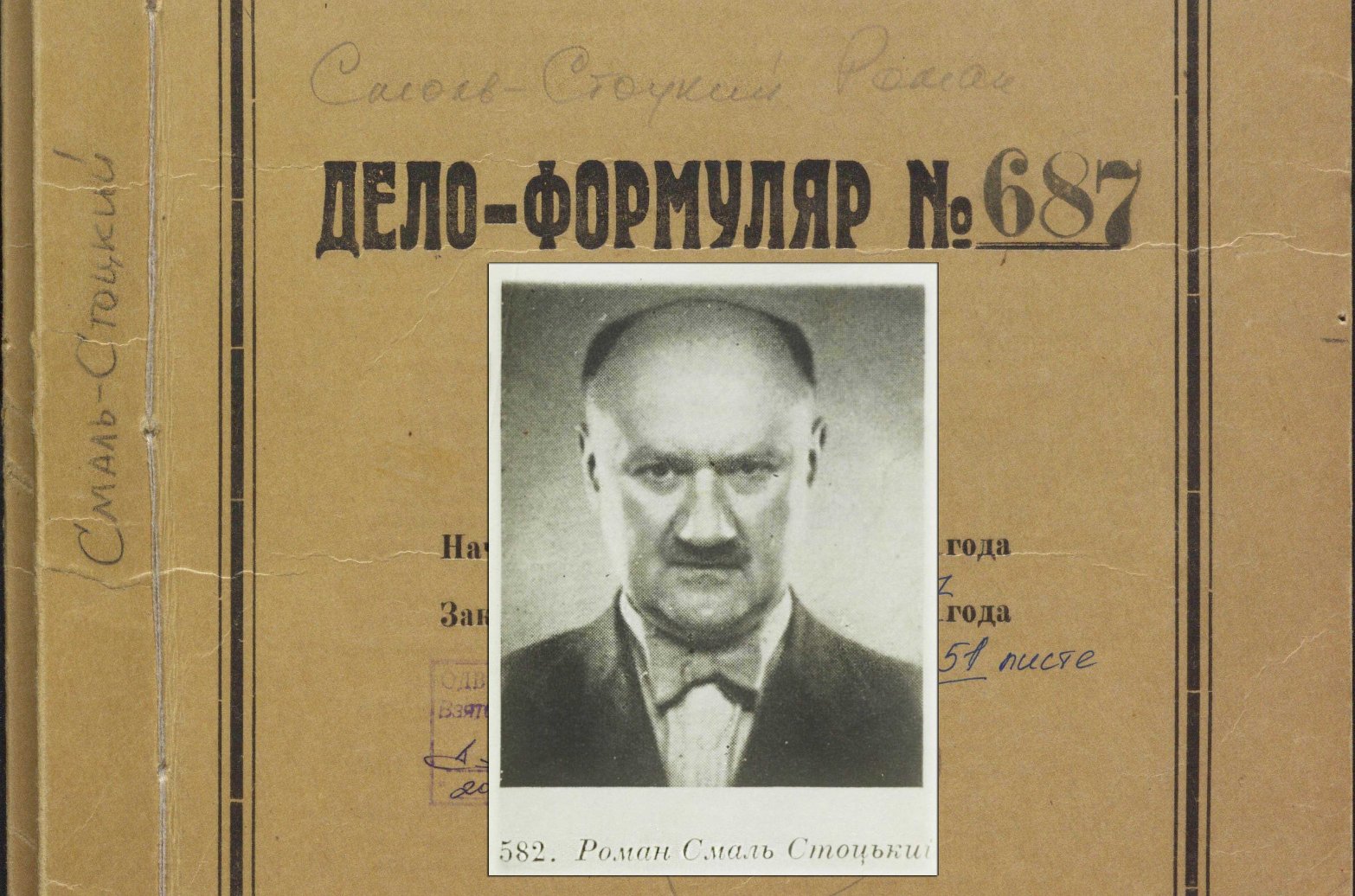
Declassified documents about Roman Smal-Stotsky, which are in the archives of the Foreign Intelligence Service of Ukraine, show that he was of great interest to the NKVD. And this interest was not only due to his work in the emigration government of the Ukrainian People's Republic and his scientific activity as a talented Ukrainian linguist-Slavist. He was a threat to the Soviet government as an organizer and activist of the “Prometheus” movement, aimed at dismemberment of the USSR and national liberation of oppressed peoples.
Roman Smal-Stotskyi’s case-form was instituted by the 1st Directorate (Intelligence) of the State Security Committee of the Ukrainian SSR on June 25, 1947, when he was in the American zone of occupation of Germany. At that time, after the war, Soviet secret services were expanding their work in new areas. Foreign centers of Ukrainian emigration again found themselves in the focus of their attention.
The order on institution of a case against R. Smal-Stotskyi near the mark “Colour” reads: “Ukrainian nationalists”. “Smal-Stotskyi is an active Ukrainian nationalist. In 1920 he was the head of the Petliurist mission in Berlin, then he joined the government of the Ukrainian People's Republic, where he now holds the post of Deputy Minister of Foreign Affairs”(BSA of the SZR of Ukraine. - F. 1. – Case 9813.– P1).
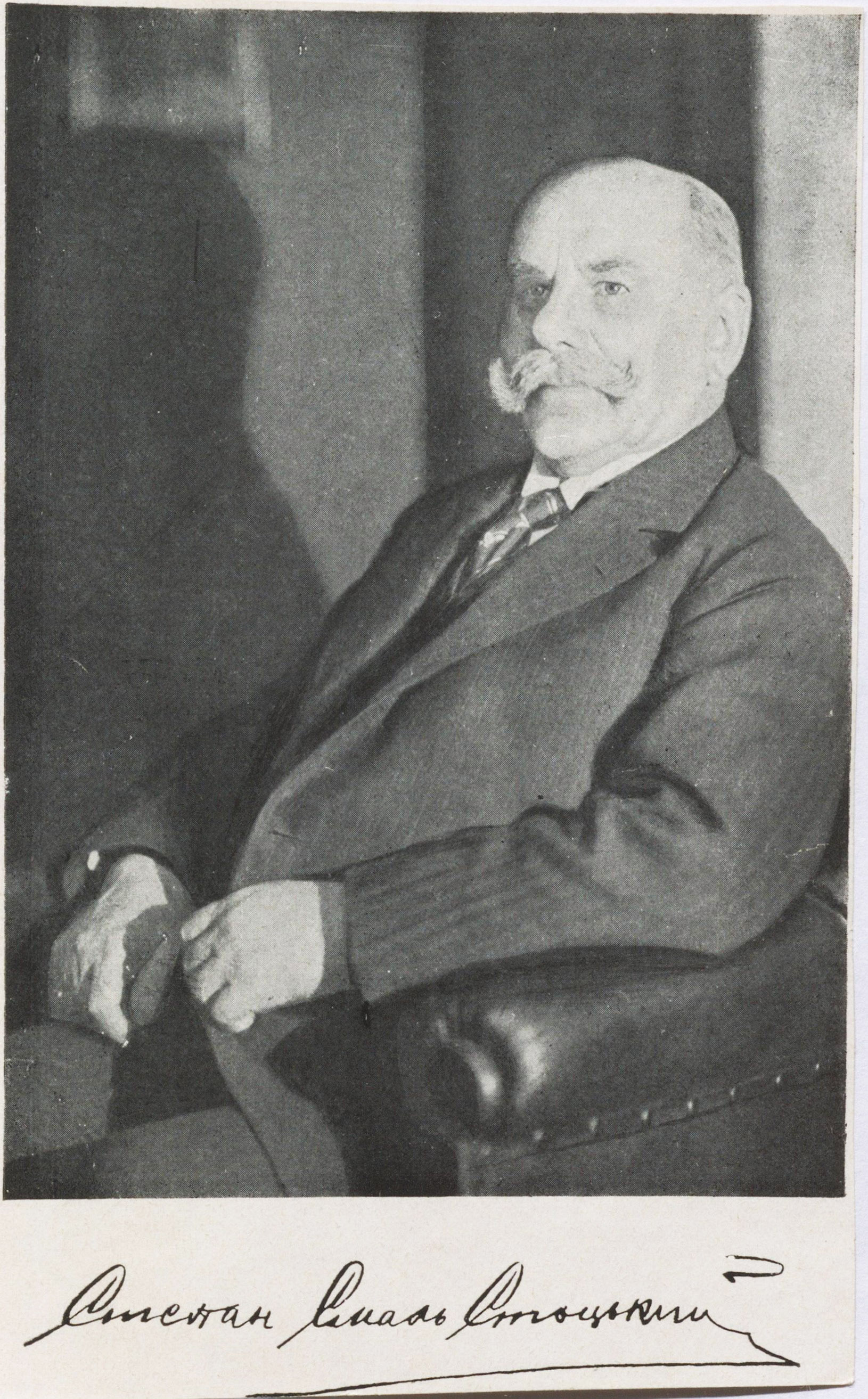 All in all, there is little biographical information in the case. There is not even the date and exact place of birth. Apparently, they did not have time to transfer the case to the category of investigative and choose agents for a thorough study of the object of interest. There are no materials about the search for close relatives and acquaintances in Ukraine, which could be used in the cultivation. Instead, there is a photo of R. Smal-Stockyi's father - Stepan, a linguist respected in Chernivtsi, teacher, head of the Department of the Ukrainian Language and Literature, Dean of the Faculty of Philosophy of the local university, prominent public and political figure, member of the Bukovina Sejm and Vienna Parliament, who during his life was called the creator of the Ukrainian national revival in Bukovina.
All in all, there is little biographical information in the case. There is not even the date and exact place of birth. Apparently, they did not have time to transfer the case to the category of investigative and choose agents for a thorough study of the object of interest. There are no materials about the search for close relatives and acquaintances in Ukraine, which could be used in the cultivation. Instead, there is a photo of R. Smal-Stockyi's father - Stepan, a linguist respected in Chernivtsi, teacher, head of the Department of the Ukrainian Language and Literature, Dean of the Faculty of Philosophy of the local university, prominent public and political figure, member of the Bukovina Sejm and Vienna Parliament, who during his life was called the creator of the Ukrainian national revival in Bukovina.
Roman followed in his father's footsteps. He was born on January 8, 1893 in Chernivtsi. From 1911 to 1914 he studied linguistics at the universities of Vienna, Leipzig and Munich. In 1915 he defended his doctoral dissertation in Munich. During the First World War he became an active member of the Union for Liberation of Ukraine. He participated in organizing cultural and educational activities for the Ukrainians of the Russian Imperial Army, who were in POW camps in Germany. At the end of 1918 he was appointed diplomatic representative of the Western Ukrainian People's Republic (WUPR) in Berlin. After the act of unification of the Western Ukrainian People's Republic with the Ukrainian People's Republic (UPR) in January 1919 he became an Adviser, and in 1921 an Ambassador at the UPR’s Embassy in Berlin. He held this position until the closure of the Embassy in March 1923, when he moved to Prague, where he became a Professor at the Ukrainian Free University.
From the end of 1924 until the beginning of the Second World War he was Professor of Ukrainian linguistics at the University of Warsaw and Secretary of the Ukrainian Scientific Institute in Warsaw and editor of its publishing house. At the same time, he held various positions in the UPR government in exile, including the UPR’s Ambassador to the Polish government, Minister of Culture, Minister of Foreign Affairs, and Deputy Prime Minister. In 1926–1939 (as well as in 1946–1947) he was the leader of the Prometheus League, which included representatives of different peoples of the Soviet Union who fought for independence.
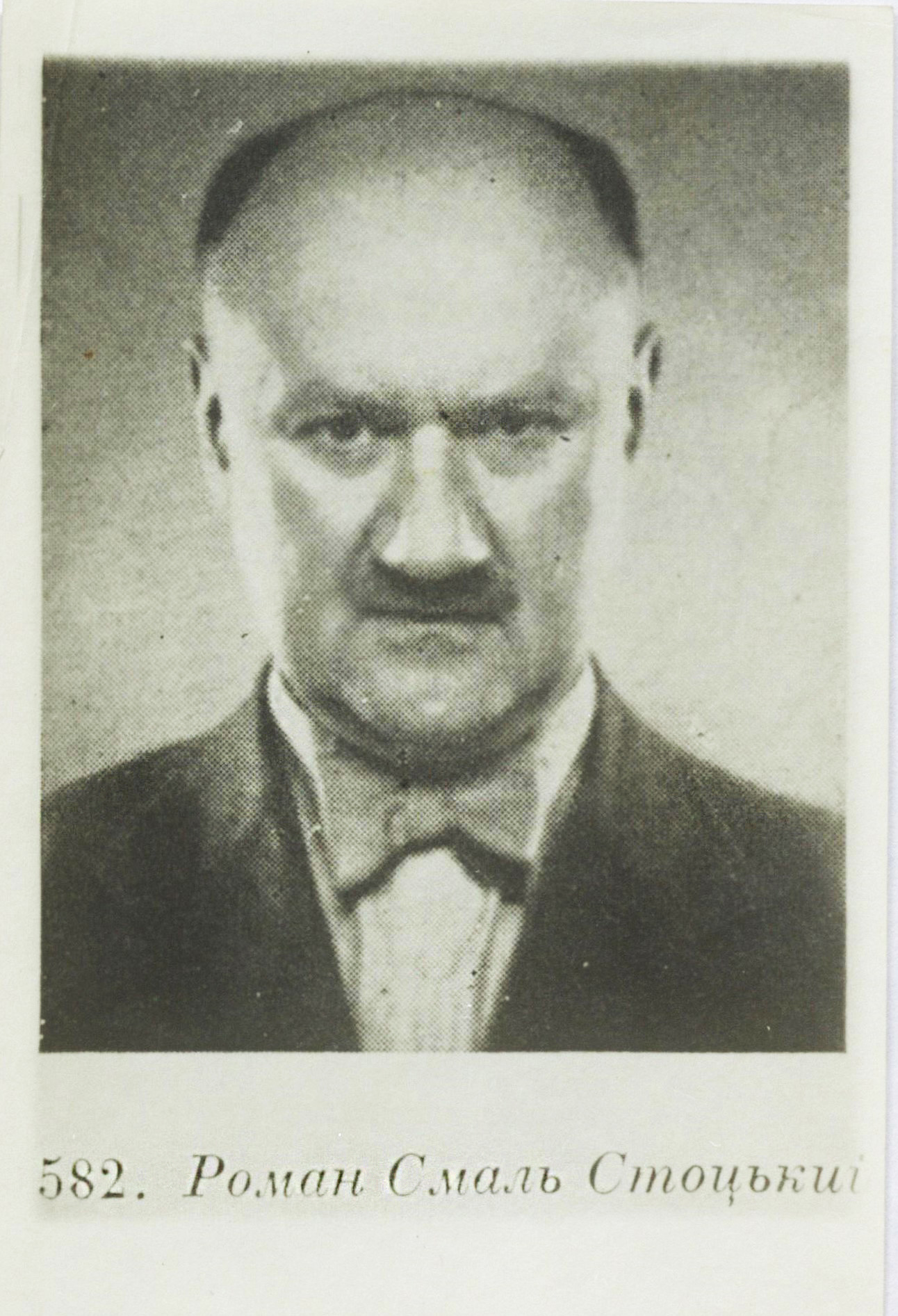 It was R. Smal-Stotskyi's participation in the Prometheus movement that most troubled the Soviet secret services. It was a movement of Polish figures who developed a theory in which they cited the legend of Prometheus, chained to the Caucasus Mountains, who was liberated by Hercules. The peoples oppressed by the former Russian Empire had to wage a joint struggle against the USSR for creation of their own national states under the leadership of a consolidated center located in Poland. And among diaspora political organizations, the key role in the Prometheus movement was played by the UPR government in exile and its representative, R. Smal-Stotskyi.
It was R. Smal-Stotskyi's participation in the Prometheus movement that most troubled the Soviet secret services. It was a movement of Polish figures who developed a theory in which they cited the legend of Prometheus, chained to the Caucasus Mountains, who was liberated by Hercules. The peoples oppressed by the former Russian Empire had to wage a joint struggle against the USSR for creation of their own national states under the leadership of a consolidated center located in Poland. And among diaspora political organizations, the key role in the Prometheus movement was played by the UPR government in exile and its representative, R. Smal-Stotskyi.
One of the archival documents reads as follows:
In 1925, on the instructions of the Second Department of the Polish General Staff, Smal-Stotskyi, together with Oleksandr Shulhyn, Pavlo Shandruk, and other prominent UPR’s members, organized an anti-Soviet international organization in Warsaw called the Prometheus League of the Atlantic Charter, one of the tasks of which was “defending” the national right to self-determination of the peoples of Eastern Europe (Georgia, Azerbaijan, the North Caucasus, Ukraine, Turkestan).
The Prometheus League, uniting the emigrant groups of the peoples of the USSR, was one of the most anti-Soviet organizations. Branches of the Warsaw Prometheus Center existed before the war in France, Czechoslovakia, Finland, the Netherlands, and other countries, where their anti-Soviet work was directed by relevant intelligence services.
Roman Smal-Stotskyi had been the leader of the Prometheus League since its creation. Until 1939, the official organ of Prometheus was the newspaper Revue de Prometheus, published by Shulhyn in Paris (BSA of the SZR of Ukraine. - F. 1. – Case 9813. - P. 33).
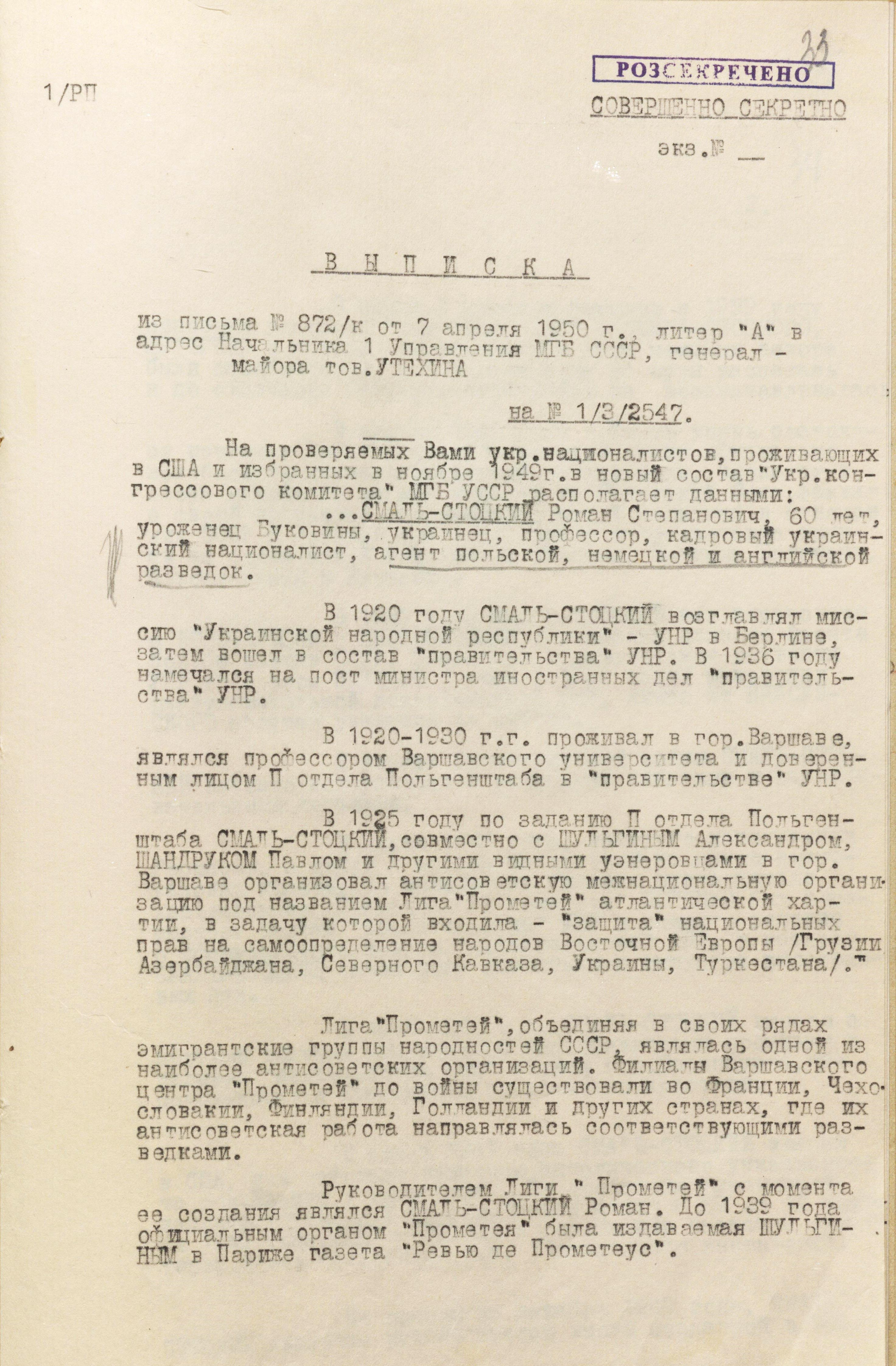
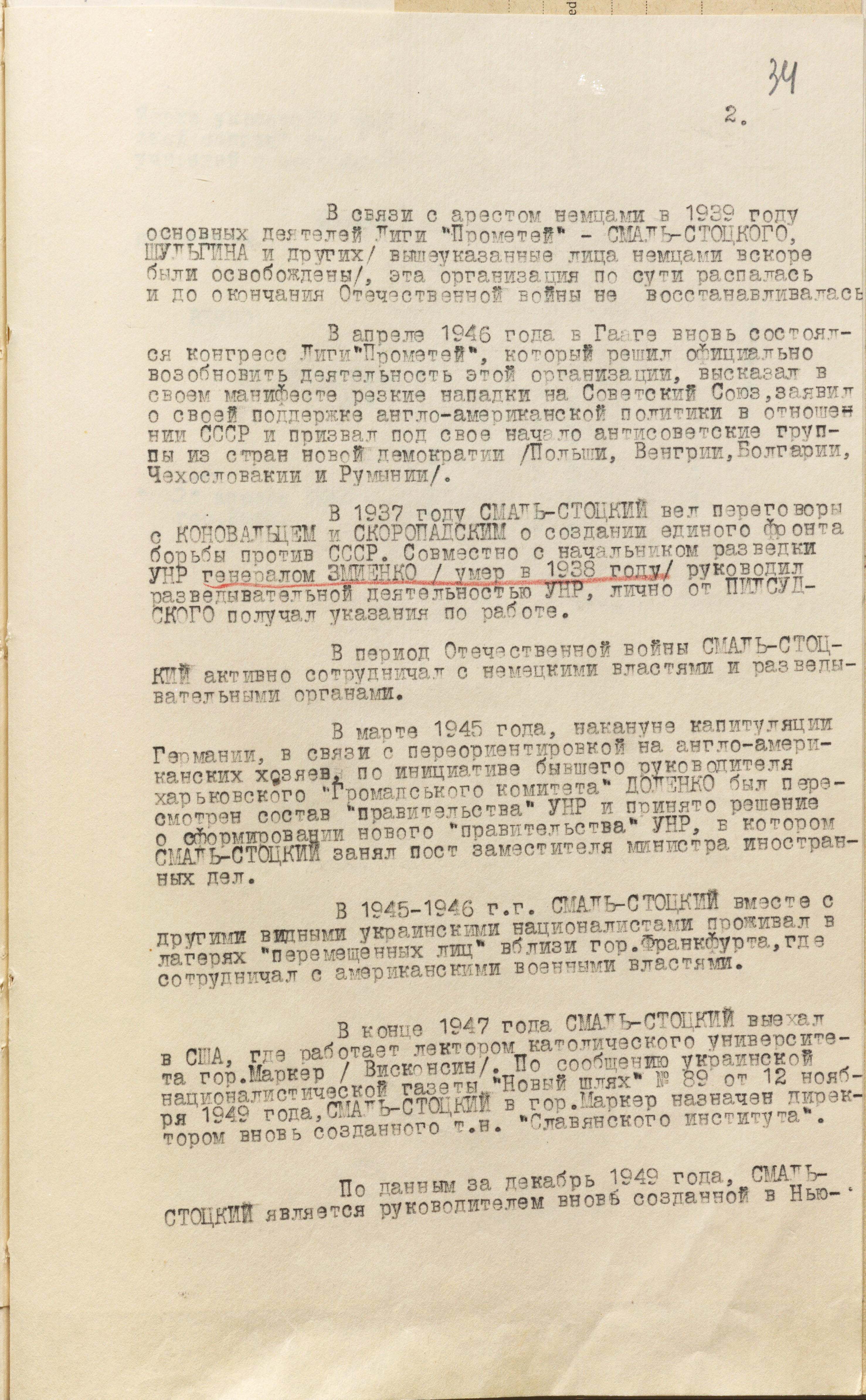
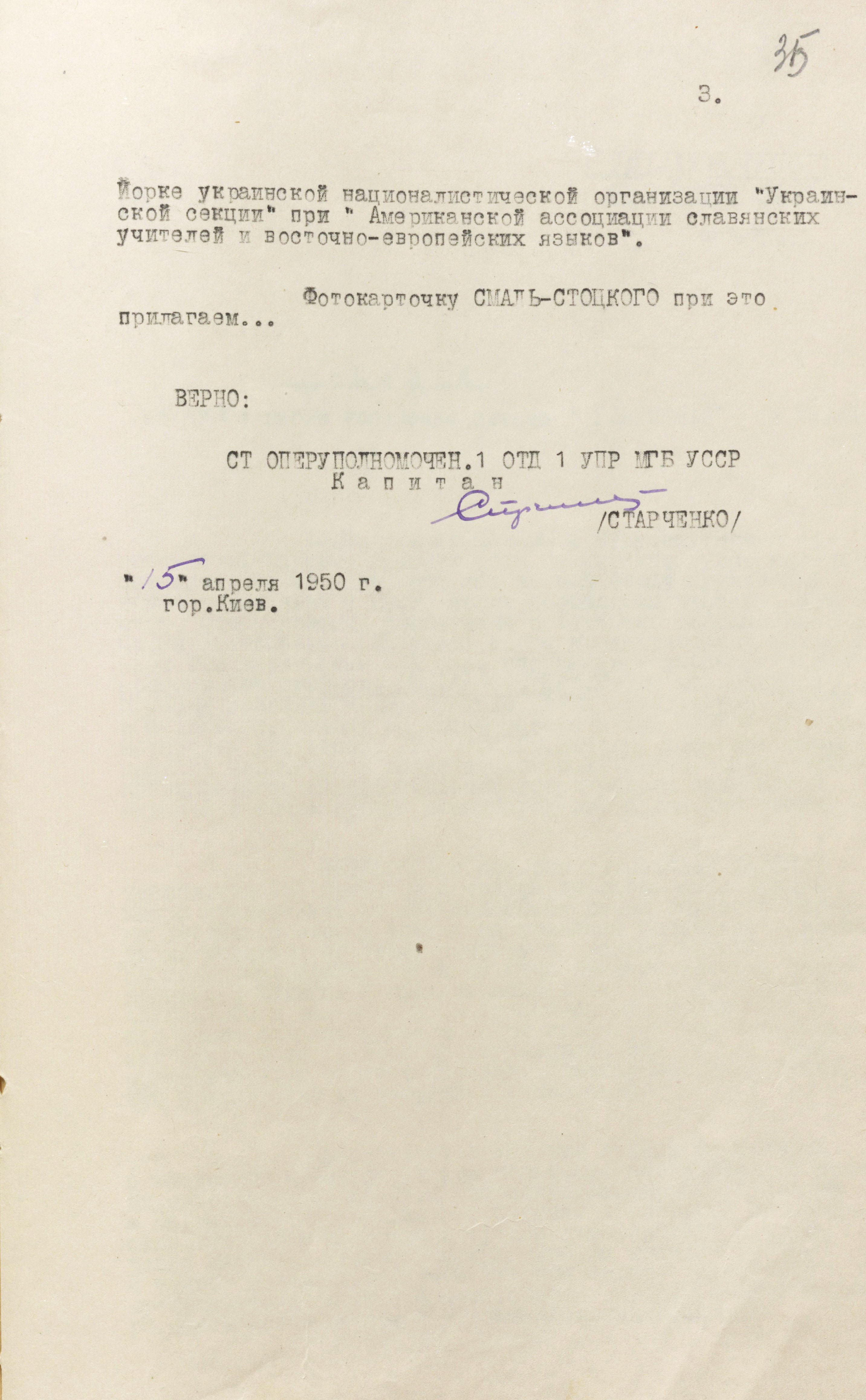 The document further states that in 1937 R. Smal-Stotskyi negotiated with Ye. Konovalets and P. Skoropadskyi on creation of a single front against the USSR and together with the Chief of the UPR Intelligence, General V. Zmiyenko, led the UPR's intelligence activities.
The document further states that in 1937 R. Smal-Stotskyi negotiated with Ye. Konovalets and P. Skoropadskyi on creation of a single front against the USSR and together with the Chief of the UPR Intelligence, General V. Zmiyenko, led the UPR's intelligence activities.
The participation in the management of the UPR’s Intelligence attributed to R. Smal-Stotskyi by the MGB of the USSR can be explained by the fact that the document dates back to 1950, and in the postwar years the new generation of Chekists was not well versed in how the UPR's Intelligence operated in the interwar period. In fact, R. Smal-Stotskyi had never been a member of the Intelligence of the State Center of the Ukrainian People's Republic in exile. He could maintain contacts with its leaders and employees as a public and political figure, but that was all. At least, archival documents from other cases do not mention his participation in intelligence work.
Instead, NKVD-MGB officers persistently attributed to him contacts with various special services in their reports. Thus, a document entitled “List of Prominent Figures of Ukrainian Emigration” reads about him: “Smal-Stotskyi - former Ambassador of the UPR in Berlin. Former agent of the Austrian General Staff. Thanks to his connections in Berlin, he fulfills important diplomatic tasks of the Petliurists. Is associated with the Warsaw defensive and Petliura's counterintelligence. One of outstanding and active leaders of the UPR emigration "(BSA of the SZR of Ukraine. - F. 1. - Case 12628. - Vol. 6.– P. 190).
In another document, he is referred to as “an agent of Polish, German and English intelligences”. Of course, at that time, Chekists would try and describe targets of cultivation in the darkest possible colors to demonstrate the importance of their work and to receive awards for it. At that time, almost all anti-Soviet elements were agents of foreign intelligences.
In the situation with Smal-Stotskyi, MGB could not reach any result. At least, this is evidenced by the materials of the case-form. According to the documents available in it, it was possible to trace his movement and main activity only in fragments.
For example, it is mentioned that in 1939 R. Smal-Stotskyi, O. Shulhyn and other leading figures of the Prometheus League were arrested by the Germans, but were soon released. Then the organization fell apart and did not resume its work until the end of the war. In April 1946, the Prometheus League Congress was held, where new plans were outlined, including to involve representatives of Poland, Hungary, Bulgaria, Czechoslovakia, and Romania in anti-Soviet activities. At that time, R. Smal-Stotskyi was in displaced persons camps near Frankfurt. At the end of 1947 he left for the United States.
One of the documents reads: “He was the first and for that period the only Ukrainian emigrant who not only received a visa to travel to America, but was also urgently transported to the United States by plane. In the United States, Smal-Stotskyi became a Professor at the university, speaks in the American press as an expert on the Ukrainian issue and maintains constant contact with the UPR’s circles in Germany (including Ivan Mirchuk, Rector of the Ukrainian Free University) "(BSA of the SZR of Ukraine. - F. 1. - Ref. № 9813.– Ark. 27).
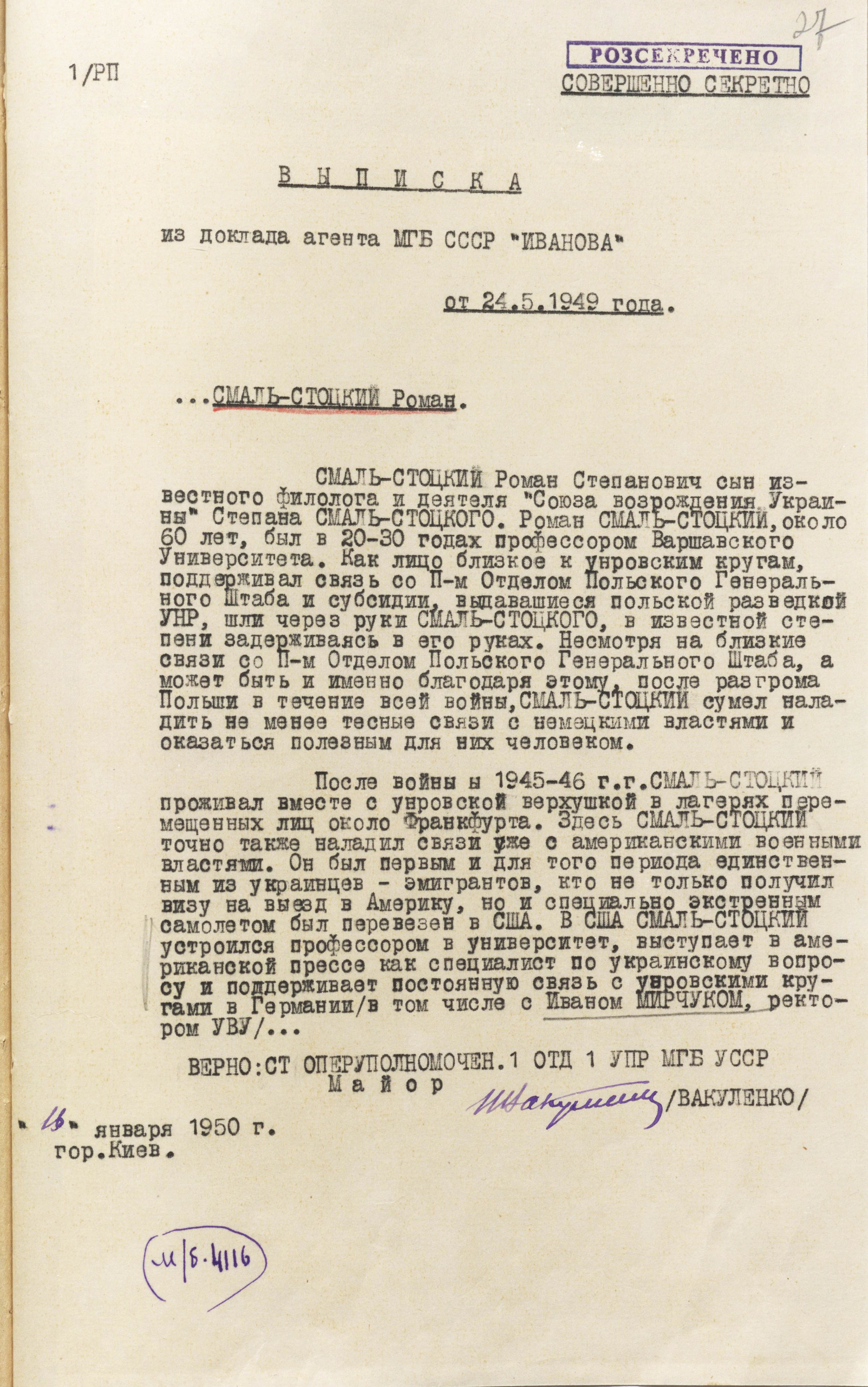 Other documents provide information about Roman Smal- Stotskyi’s scientific, teaching and socio-political activities in which he was engaged until the last days of his life in the United States. For example, he was a Professor of Eastern European history at Market University (Milwaukee, Wisconsin). In 1949 he founded the Slavic Institute at the same university and was its director until 1965. From 1952 he was the Head of the Taras Shevchenko Scientific Society in the United States, and from 1955 - President of its Main Council.
Other documents provide information about Roman Smal- Stotskyi’s scientific, teaching and socio-political activities in which he was engaged until the last days of his life in the United States. For example, he was a Professor of Eastern European history at Market University (Milwaukee, Wisconsin). In 1949 he founded the Slavic Institute at the same university and was its director until 1965. From 1952 he was the Head of the Taras Shevchenko Scientific Society in the United States, and from 1955 - President of its Main Council.
During that period he devoted much time to research in the field of linguistics, Ukrainian folk etymology, Russian language policy in the Ukrainian SSR and others. One of the last reports in the case states that he became the leader of the Ukrainian nationalist organization “Ukrainian Section” at the American Association of Slavic Teachers and Eastern European Languages in New York. In 1953, the case against him was closed and handed over to the archives. In fact, it was limited throughout the entire period of the proceedings to the recording of R. Smal-Stotskyi's activities in different countries.
Today, this information is an important addition to the little disclosed information, publications and memoirs that have survived about Roman Stepanovych Smal-Stotskyi - this prominent Ukrainian public and political figure who dedicated his life to the struggle for national liberation of Ukraine and other peoples.
